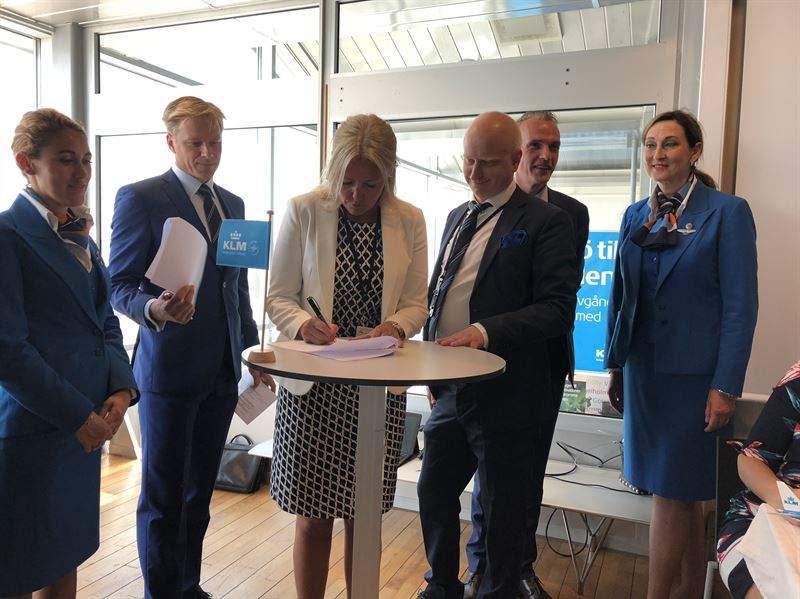Södra and KLM have signed a letter of intent to conduct a joint feasibility study to examine the possibility of producing green jet fuel.

Image: A press conference was held at Växjö Småland Airport where a letter of intent covering the development of biojet fuel was signed. Photo: Courtesy of Södra.
In parallel, Södra will become the first company in Sweden to join KLM’s Corporate Biofuel Programme, with the aim of supporting growth in demand for fossil-fuel-free alternatives in the aviation sector.
Södra communications and sustainability director Maria Baldin said: “Air travel accounts for some 2% of global CO₂ emissions. We are now taking two key steps forward to create sustainable alternatives to fossil-based jet fuel. The current supply of biofuel is too low and this is something we want to change.”
KLM’s Biofuel Programme enables companies to ensure that sustainable biojet fuel is used for their air travel by paying a surcharge that covers the difference in price between sustainable biofuel and regular jet fuel.
Maria Baldin said: “Helping to reduce CO₂ emissions is in line with our sustainability targets. Our goal is to be fossil-fuel free by 2030. We will now shoulder an even greater responsibility for our air travel.”
Air France KLM North Europe general manager Paul Terstegge said: “KLM is proud to offer Sweden’s most sustainable European air routes viewed over time. We are grateful to have local partners that want to play a part in this.”
Letter of intent and development of biojet fuel
On Monday, a press conference was held at Växjö Småland Airport where a letter of intent covering the development of biojet fuel was signed. The collaboration aims to promote growth in supply and demand and development of the appropriate policy instruments for more sustainable air travel.
Södra energy strategic business developer Henrik Brodin said: “The greatest challenge is the absence of policy measures. Since production costs for biojet fuel are high compared with fossil fuels, there is very limited scope for growth in demand, which is needed to reduce costs. There must be a clear political strategy to address this issue.”
The collaboration contains a feasibility study to examine the prerequisites for producing biojet fuel from forest biomass. While Södra and KLM are the main partners in the collaboration, many other players are also participating.
Henrik Brodin said: “It’s about working together to examine the entire chain – from production to combustion – and creating a business model that enables a change in air travel.”
Source: Company Press Release
